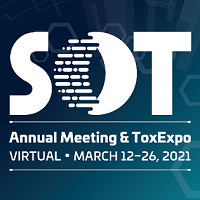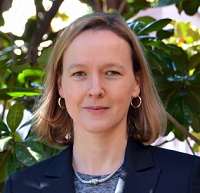Superfund Research Program
April 2021

NIEHS Superfund Research Program (SRP)-funded researchers from all over the country tuned in for the virtual 2021 Society of Toxicology (SOT) Annual Meeting and ToxExpo on March 16-26. More than 60 SRP project leaders and trainees from more than 13 SRP Centers gave oral and poster presentations.
“SOT is a wonderful opportunity for us to see the great work our researchers are doing,” said SRP Director Bill Suk, Ph.D. “Watching our trainees on display receiving recognition for their impressive accomplishments is particularly outstanding.”
SRP Trainees Triumph
Many SRP trainees received specialty section awards during the 2021 Annual Meeting.

Texas A&M University SRP Center trainee Chimeddulam Dalaijamts, Ph.D., was awarded Best Paper from the SOT Biological Modeling Specialty Section. Through an SRP-funded study, Dalaijamts and her colleagues used advanced computer modeling to characterize how preexisting nonalcoholic fatty liver disease alters metabolism of the contaminant perchloroethylene in mice.
During the Occupational and Public Health Specialty Section, University of North Carolina at Chapel Hill (UNC) SRP Center trainee Abhishek Venkatratnam won the Paper of the Year award. His research showed that preconception exposure to inorganic arsenic may contribute to diabetes in male offspring.
University of New Mexico (UNM) trainee Lindsey Volk earned the Dharm V. Singh Carcinogenesis Graduate Student Endowment Award for the SOT Carcinogenesis Specialty Section. She investigates how arsenic interferes with a certain enzyme that may hold the key for how arsenic exposure leads to cancer.
SRP Researchers Recognized
Several SRP-funded researchers were recognized with SOT awards for exceptional collaborations, publications, presentations, and submitted abstracts.
UNC SRP Center director, Rebecca Fry, Ph.D., was awarded the 2021 SOT Translational Impact Award for her outstanding vision and leadership of several multidisciplinary team efforts.

Specifically, she leads a translational project that investigates how prenatal exposure to arsenic, cadmium, and perfluorinated chemicals is linked to long-term health effects. Fry also looks at population-based studies to find mechanisms of action within them and incorporates community engagement along the way. Her ultimate goal is to identify mechanisms of contaminant-induced disease and why some people are more susceptible.
Johnnye Lewis, Ph.D., received the 2021 SOT Public Communications Award. She directs the UNM Metal Exposure and Toxicity Assessment on tribal Lands in the Southwest (METALS) SRP Center and co-directs the Center for Native Environmental Health Equity Research funded by the U.S. Environmental Protection Agency, National Institute on Minority Health and Health Disparities, and NIEHS. Lewis was recognized for her decades-long record of building innovative programs that blend environmental health research with culturally appropriate communication strategies, particularly among Native American populations exposed to toxic legacy mine wastes.
Michigan State University SRP Center Director Norbert Kaminski, Ph.D., was invited to present his research exploring the molecular mechanisms by which cannabinoids alter immune response. Kaminski, the recipient of the 2020 SOT Merit Award, explained how his team discovered cannabinoid receptor expression within cells of the immune system.
NIEHS SRP staff members Danielle Carlin, Ph.D., Michelle Heacock, Ph.D., Heather Henry, Ph.D., Brittany Trottier, M.P.H., Sara Amolegbe, M.S.P.H., and Suk, joined the sessions to interact with grantees, view their posters, and hear about their innovative research as well.
Carlin gave opening remarks during the workshop and chaired a session titled "Improving Our Understanding of Toxicant Metabolism and Cytochrome P450s Using Novel Knockout Models and High-Throughput Methods." Cytochrome p450 is an enzyme that metabolizes chemicals and pharmaceuticals in the body. The session examined the state-of-the-science of novel high-throughput assays, challenges to implementing these assays, and new knockout and humanized models.


